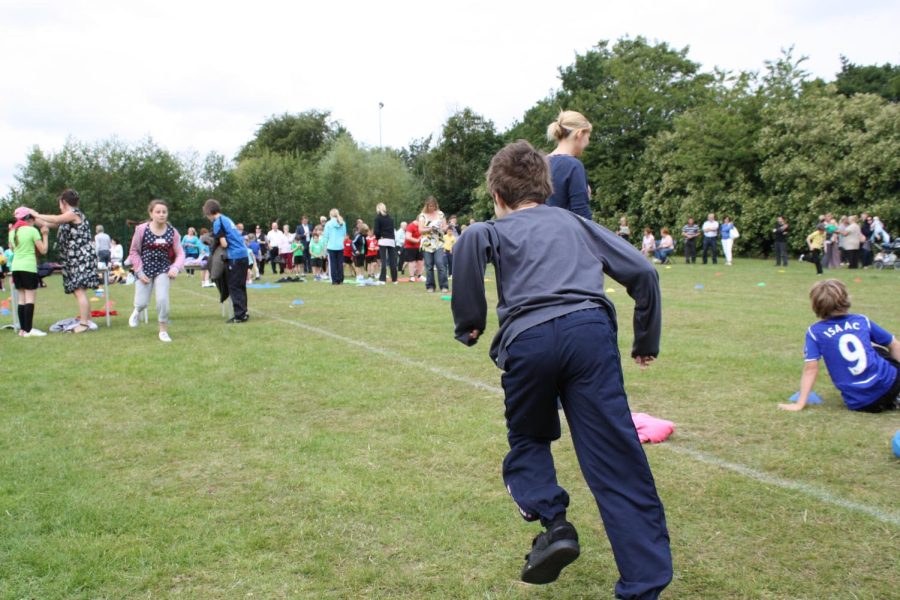Physical Activity Helps Increase Academic Performance
September 27, 2022
From vintage films to modern-day movies, the dumb jock has continuously been a typical stereotype in pop culture. However, new scientific findings have been working to break this cliche by proving that physical activity, such as a school sport, a gym class or even just a walk, significantly helps improve a student’s academic performance.
To start, physical activity is known to help improve performance with tasks that require basic cognitive functions, such as memory-facilitated learning and attention. In a study conducted in 2003, it was found that children who had just participated in physical activity outperformed their inactive peers at a variety of cognitive tasks. Not only were they much quicker when performing, but their answers also had a much greater accuracy (Tomporowski, 2003).
The same results were found when a group of active children was compared to a group that watched thirty minutes of television prior to a series of intellectual tasks (Ellemberg and St-Louis-Desêhenes, 2010).
After interviewing several Glenbard South students, such as tri-sport junior athlete Sofia Alcala and junior basketball star Allie Mizwicki, it was concluded they thought physical activity helped student performance for a wide range of reasons.
Alcala asserted that physical activity such as school sports, P.E. class and going to the gym helps her ‘relax and keep her mind off of stressful situations’.
Mizwicki added on by saying that exercise ‘kept her awake’ and further stimulated her mind to pay more attention to school work.
Several other students went on to say that physical exercise helped with maintaining focus and energy, as well as giving them motivation and a well-deserved break from the anxieties of academic work.
As it turns out, science proves that those GBS students are on to something. Various studies performed in recent years have confirmed that even a singular session of moderate-intensity exercise can help increase behavioral and neurological connections that are correlated with the allotment of attention to cognitive tasks (Hillman et al., 2009; Pontifex et al., 2012).
That being said, physical exercise has the greatest impact on subjects such as math and reading. These subjects rely on both effective and efficient brain function, which is directly linked to the benefits of being active.
No matter the type of exercise or the type of class one needs help in, physical activity is more than worthwhile. Begin a physical fitness journey by getting involved in a GBS sport, going to the gym or even walking a dog around the neighborhood. Not only will these activities greatly benefit a student’s physical fitness, but they will also help improve everything, from one’s attention span to their math grades!
































